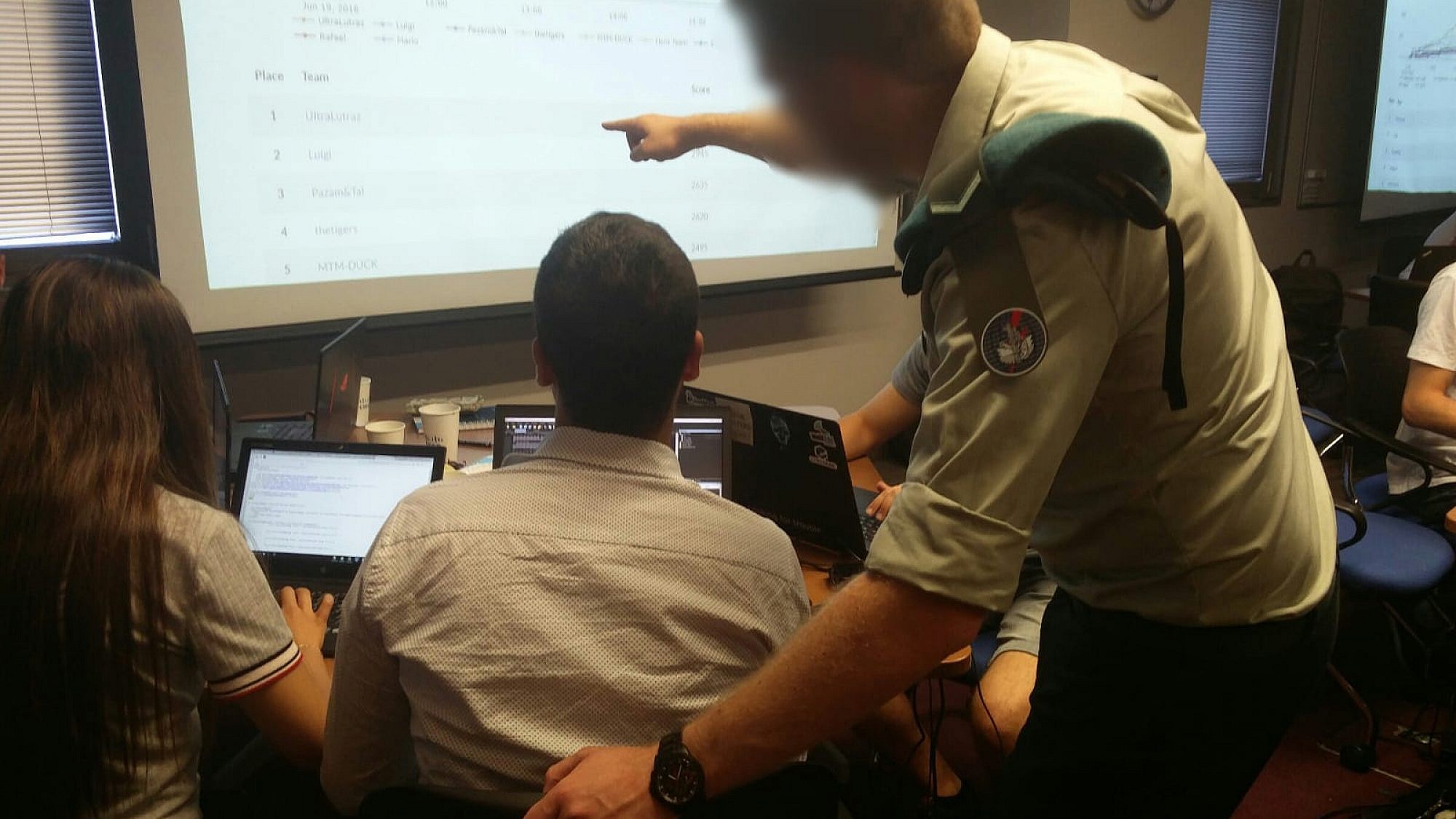The cyber defenders of the Israel Defense Forces are preparing to deal with future unknown threats that will not resemble the dangers known today, a senior cyber officer has told JNS.
Military assessments place cyber warfare on par with the potential damage that conventional weapons can incur. In some cases, cyberattacks can surpass the damage caused by known threats like missiles. A cyber arms race rages between Israel and its foes, parallel to the conventional arms race that is under way.
“We cannot go back to the world of levers, pulleys and couriers. Since we are going forward, we are absolutely vulnerable,” he said. “Our airlines can be brought down; our fighter planes can be brought down.”
Netanyahu—who said that Israel receives about 20 percent of the global investment in the sector, and who noted Israel’s cybersecurity center in Beersheva that combines military, business and high-tech know-how—added that there is “no silver bullet” against cyber threats.
“This is a supreme test for our civilization. It’s going to be tested not only by criminal organizations, by terrorists, but by other states. We have to combine forces,” said Netanyahu.
Learning to be steps ahead of an adversary
Sgt. 1st Class M, the head of the Cyber Department in the IDF’s Hoshen Unit, leads personnel that defend the military’s sensitive communications networks, without which the Israel Defense Forces could not function.
Whether wireless, wired, or using satellites and phones, the Hoshen Unit is involved in enabling military communications, and its personnel are aware of the fact that Israel’s enemies are keen on being able to shut down the IDF’s networks if they could.
“One can naturally understand that the IDF has been marked as a priority [target],” M said. “We are the focus of enemies. So we must act all day and night proactively, to defend and track, and be able to intervene in case of an incident.”
As part of that effort, the unit invests a great deal of thought into meeting threats that do not currently exist, he stated. “I can say that we are, all of the time, thinking about what will arrive tomorrow morning, about the non-trivial things. We use red teams [personnel that simulate the enemy] to attack ourselves, and we conduct surprise exercises on ourselves, at 2 a.m. on a summer night, when incidents come as a surprise. That is how we know what our defense levels are,” the officer said.
Last month, Hoshen’s Cyber Department organized a competition for all of the military’s cyber defenders to get them to think out of the box and prepare for tasks they are not used to carrying out.
The “Capture the Flag” competition was hosted by Cisco Systems, an American networking hardware giant, at its offices in Netanya. Cisco works closely with the Hoshen Unit, as its association with the event symbolizes.
“We took a whole day and brought personnel from across the whole of the military, split them up into groups and gave the participants cyber riddles with varying difficulty levels,” M said. “The goal was to win as many points as possible.”
The event included the participation of classified units, as well as cyber personnel from the Israeli Air Force and Navy. The goal was to get them to develop new abilities, M said. “Everyone has their forte—some are experts on the web, some do programming. Our goal was to take them out of their routine and expose them to things they don’t usually deal with on a day-to-day basis, so that they won’t be weak in those areas.”
The event also took IDF engineers who don’t work directly in cyber warfare and gave them a crash course in the world of cyber defenses.
“They came out of this on a higher level,” said M, “and that’s what matters.”























